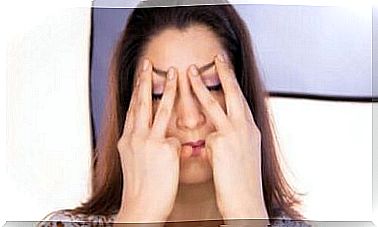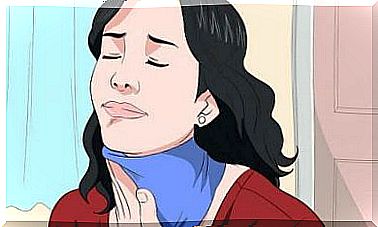What You Should Know About Mood Disorders

Mood disorders affect a significant portion of the population, and experts predict that they will increase in number over the next 20 years.
Our current lifestyle is often insecure and there is great social and professional pressure. Because of this, maintaining a positive state of mind is not always easy.
Mental conflicts can affect our lifestyle, health status and personal well-being. They can even trigger other mental disorders and organic changes.
Anxiety
This is an alarm system that produces a mental and physical response in anticipation of danger. The human body responds through various systems to the stimuli it perceives as threats.
However, these reactions become pathological when they are too intense or when they last a long time.
Depression as mood disorders
First, depression is a condition that depends on many factors and it turns into a mood disorder over time. The person affected by it may not feel positive emotions or enjoy them.
Lack of energy, vitality and loss of interest are among the most common symptoms of depression. These people do not think they have what it takes to handle the various parts of their daily routine. The condition can also fall into a mild, moderate or severe depression category, depending on the intensity of the symptoms.
- Mild depression. A person afflicted with this type of depression may perform normal activities but they feel down most of the day. In general, they lose interest in or the ability to enjoy activities.
- Moderate depression. The symptoms are more severe in these cases and it is more difficult for these people to perform their usual activities. It is usually accompanied by a loss of self-confidence and self-esteem, not to mention inferiority. They have recurring thoughts of death or suicide, impaired concentration and lack of determination. There may also be sleep disturbances.
- Severe depression. These are the most serious cases and the people who fall into this category require constant monitoring.

How are these mood disorders treated?
The joint action of different types of therapy allows the use of combined treatments. Thus, specialists recommend combining pharmacological treatments with psychological therapies.
Pharmacotherapy
When choosing appropriate drugs for each case, the effect of the various active ingredients is assessed in relation to their possible side effects. In addition, remember how important it is for you to take your medication exactly as prescribed if you have a mood disorder.
The improvement of symptoms with medication can take from two to four weeks. Unfortunately, many patients who are not aware of this often give up treatment before it starts working.
The most common side effects of these types of medications are:
- Headache
- Disease
- Insomnia
- Dry mouth
- Constipation and difficulty urinating
- Blurry vision
- Drowsiness
Exercise and dietary recommendations
Exercise and diet can improve the effect of any pharmacological treatment and prevent relapse.
Specialists recommend exercising and maintaining an active life in general. And at the same time set aside an appropriate number of hours for rest. Also, try to keep yourself busy. It helps you keep negative thoughts away.
In addition, eating a properly balanced diet high in fruits and vegetables will relieve constipation associated with drug treatment. It is important to avoid alcohol consumption as it increases the side effects of medications and decreases their effectiveness.

Psychological treatment
When it comes to mood disorders, resources in psychotherapy provide knowledge and also support to those who suffer from them. This is because these therapies encourage them to respond to any changes in their mood. They thus work on self-esteem and control of emotional inclinations.
There are treatments for mood disorders
As the latter, the mood can be either normal, elevated or depressed. Thus, a person suffering from a mood disorder often loses the sense of control over his mood and generally experiences discomfort. Therefore, they need to combine pharmacological and psychological treatment and also take certain dietary measures.









